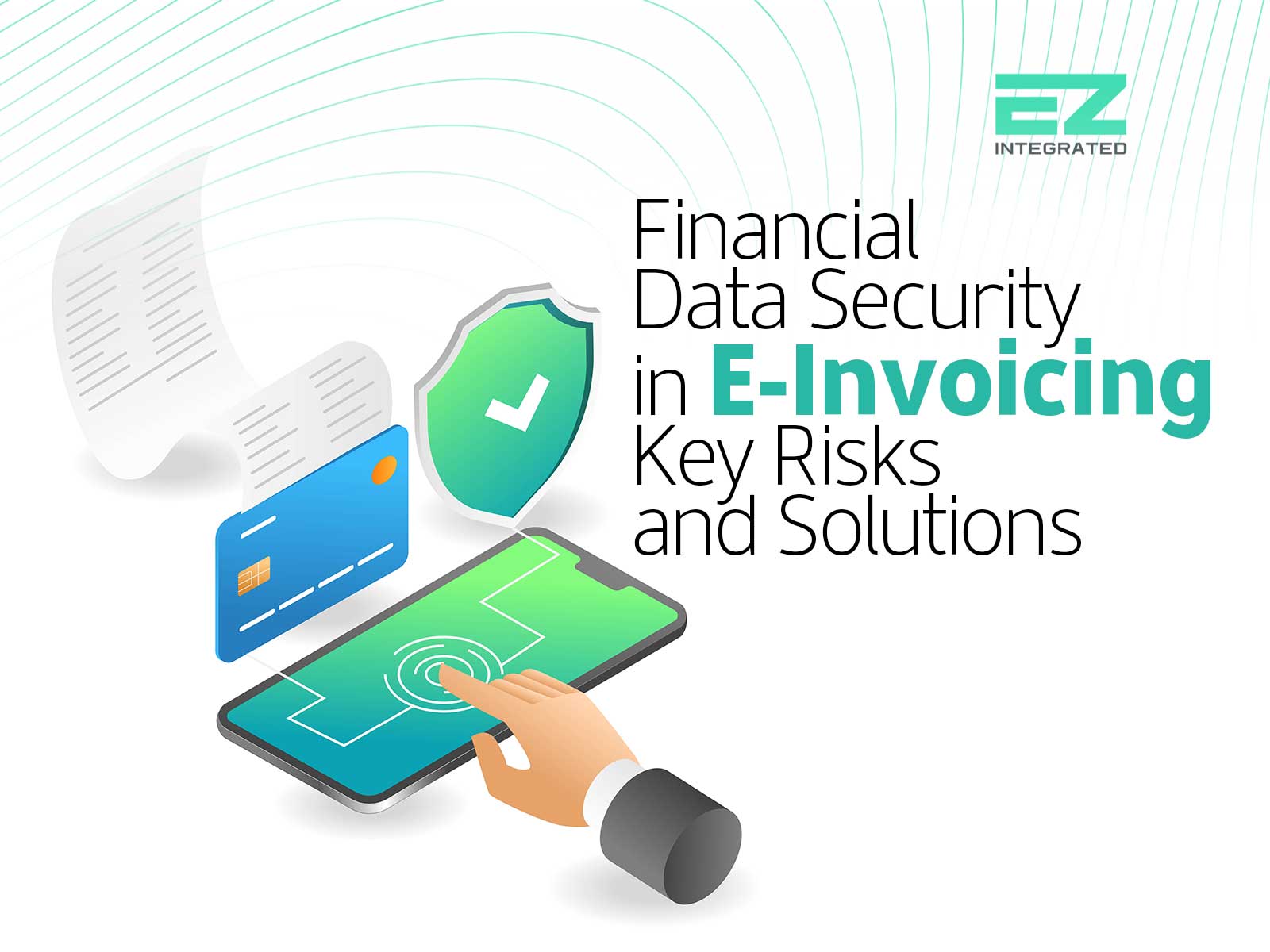Financial data security is becoming a top priority for Saudi businesses, especially as electronic invoicing expands. While e invoicing speeds up operations and ensures tax compliance, its success depends on secure data exchange.
In this article, we simplify the concept of financial data security, explore the risks businesses face, and provide practical solutions to protect your data while staying compliant in Saudi Arabia.
What Is Financial Data Security and Why Does It Matter?
Financial data includes all sensitive information related to transactions, such as:
- Client and supplier names
- Payment amounts and VAT values
- Invoice dates and numbers
- Tax identification numbers and product codes
- Electronic signatures and verification links
When issuing e invoices, your business stores and transfers this data digitally. Without proper protection, it risks being stolen, altered, or corrupted. Hence, financial data security means applying all necessary measures to prevent unauthorized access and ensure the integrity of your information from issuance to archiving.
Common E Invoicing Security Risks
Linking your e invoicing system to ZATCA’s FATOORA platform comes with several risks:
1. Network Breaches
Unsecured internet connections allow hackers to intercept data during transfer.
2. Malware Attacks
Viruses may alter invoices before they are sent, without employee awareness.
3. Unauthorized Access
Without defined access controls, staff or third parties may view or edit sensitive data.
4. Poor Backup Practices
Data loss due to technical issues or accidental deletion can be permanent without secure backups.
5. Lack of Employee Training
Many breaches result from employee mistakes, like clicking phishing emails or using weak passwords.
Also read: How to Perform E-Invoice Validation: Tips to Avoid Fraud
Practical Solutions to Strengthen Financial Data Security
To ensure financial data security and full compliance with Saudi e invoicing regulations, adopt a well-rounded approach combining technology and human readiness:
1. Encrypt Your Data
Use HTTPS or SSL protocols to protect information during system transfers.
2. Implement Digital Signatures
They verify that invoice contents haven’t been altered after issuance, a must in Phase 2.
3. Define Access Roles
Limit who can issue, edit, or archive invoices, and track login activity.
4. Use Cloud Backups
Choose reliable local storage providers that offer fast recovery in emergencies.
5. Perform Regular Security Audits
Work with experts to identify and fix vulnerabilities before they’re exploited.
6. Train Your Team
Conduct regular training on phishing detection, password hygiene, and secure system usage.
Also read: How Does Cloud Computing Work in an E Invoice System
How EZ Integrated Supports Your Financial Data Security
EZ Integrated goes beyond e invoicing integration. We support your business every step of the way to ensure financial data security is maintained from day one.
Here’s how we help:
- Custom security consultation tailored to your operations
- Encrypted, reliable integration with the FATOORA platform
- Clear access roles within your internal system
- A strong backup and data review plan
- Team training to improve daily security practices
Secure Your E Invoicing Journey from the Start
In today’s fast-moving digital world, cybersecurity is essential. E invoicing promotes transparency, but without strong financial data security, your business may be exposed to serious risks.
Begin with confidence. Partner with EZ Integrated for expert support, and get a free consultation to secure your data and integrate smoothly with FATOORA.
